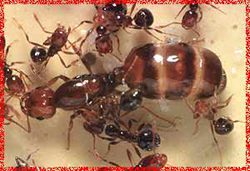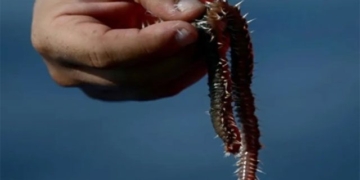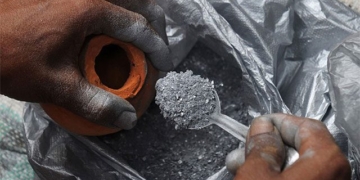Mating comes at a cost, even for a queen. Young queen ants of the leafcutter species must gamble their health for a chance at long-term successful reproduction.
 |
Queen ants and worker ants (Source: whyfiles) |
This is a very dangerous strategy: within just a few hours, the queen must mate and store hundreds of millions of sperm to use throughout the remaining 30 years of her life – all of which weakens her immune system. Afterward, she must establish a colony and expose herself to all kinds of pathogens in the soil.
“If offspring mate too frequently and store too much sperm, they cannot regulate their immune system,” said Boris Baer at the Social Evolution Center at the University of Copenhagen, Denmark.
When Baer and his colleagues stimulated the immune system of queen ants and measured the response, they found that the response decreased as the amount of stored sperm increased.
This is crucial since more than 95% of queen ants do not survive the initial colony founding phase, primarily due to attacks from parasites.
“If you mate too much, you tend to die early. That’s why ‘older sisters’ live longer,” stated Mike Siva-Jothy, a biologist at the University of Sheffield, UK.
T. An




















































